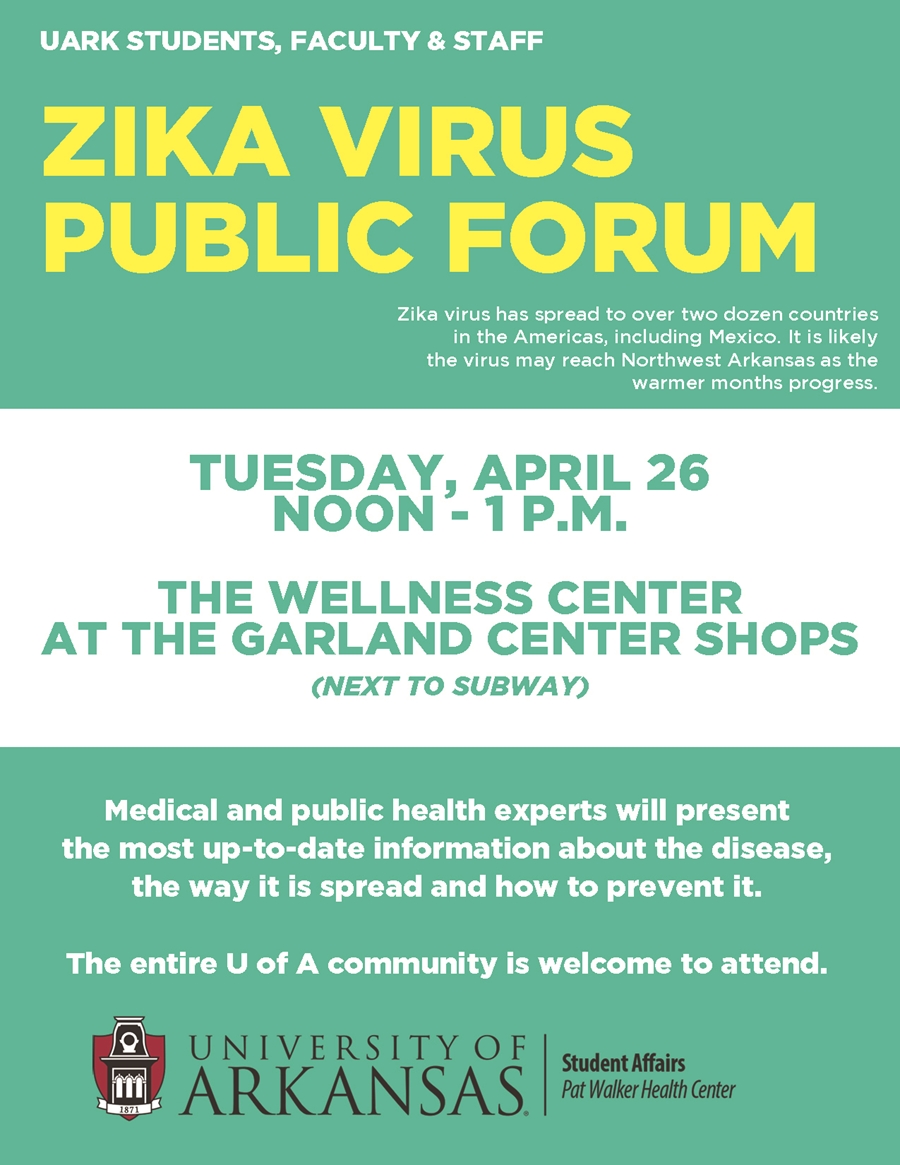
FAYETTEVILLE, Ark. – The Pat Walker Health Center will host a campus public information forum about the Zika virus from noon to 1 p.m. Tuesday, April 26, at The Wellness Center in the Garland Center Shops.
Medical and public health experts will present the most recent information about the disease, the way it is spread and how to prevent it. The entire U of A community is welcome to attend.
"We continue to learn new information through the CDC every day, so it's important our campus community has the most accurate and up-to-date information possible," said Mary Alice Serafini, executive director of Pat Walker Health Center. "As mosquito season arrives, and study aboard students begin leaving on their trips, we want to make sure we provide valuable and usable information to keep our students, faculty and staff protected, both locally and abroad."
Zika virus is a mosquito-borne flavivirus that is spread primarily by the Aedes species mosquito. While 80 percent of those infected with Zika show no symptoms, others have symptoms that are relatively mild and can include fever, a raised red rash, joint pain, headache and conjunctivitis.
Zika virus infection during pregnancy can cause a serious birth defect called microcephaly, as well as other severe fetal brain defects.
Once a person has been infected, he or she is likely to be protected from future infections.
Although the virus is primarily transmitted by mosquito bites, an infected male can spread the disease through unprotected sexual intercourse.
"Practicing safe sex or abstinence is the best way to avoid sexually transmitted Zika," says Dr. Huda Sharaf, medical director at Pat Walker Health Center. "Male partners returning from Zika-affected areas should use condoms for at least eight weeks; six months if symptoms are or were present."
The Zika virus has now been found in more than 30 countries in central and South America. There have been no cases of locally transmitted Zika reported in the United States, however it is possible the disease will eventually spread to this country, and precautions are recommended, especially during the warmer weather.
U of A students, faculty and staff who travel to Zika-affected regions are concerned about the disease, but the mosquitoes that carry the virus are also found in Arkansas, and throughout many southern states. As the warmer months settle in, proper mosquito bite prevention measures should be taken locally.
More information about the Zika virus can be found on www.cdc.gov/zika.
Contacts
Zac Brown, assistant director of communications
Pat Walker Health Center
479-575-4649,
Steve Voorhies, manager of media relations
University Relations
479-575-3583,